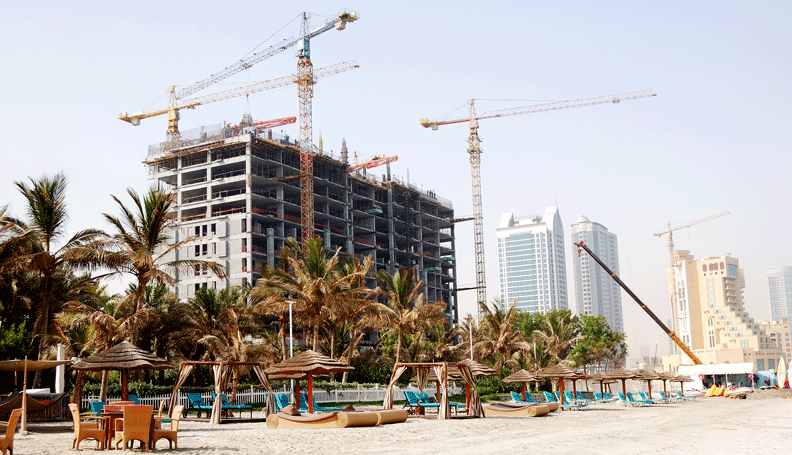
The law of supply and demand has worked in the hotel industry's favor in recent years as the number of people traveling to the Southeast reached new highs.
Hotel construction fell in the wake of the financial crisis, and the number of available rooms didn't grow much in 2012, 2013, and 2014. As travel bounced back from the economic downturn, the rising demand for travel and limited new supply helped increase hoteliers' pricing power.
The result is that for a string of years now, hotels have been fuller than they've ever been and able to charge more for their rooms. The year 2015 marked a high point, with the industry's major performance indicators—average daily rate, occupancy, and revenue per available room (or RevPAR), which is a measure of how well a hotel uses its room inventory—reaching record levels, said Jan Freitag, senior vice president of lodging insights with STR, a Hendersonville, Tennessee, hotel market data tracker.
"There was a very, very healthy rebound" after the Great Recession, Freitag said. "People got used to awesome growth rates."
Industry faces reality of slower growth
Now, growth is poised to cool off as hotel development picks up and more rooms become available. That doesn't necessarily spell bad times in the near term. As more new hotels open, operators and managers say they still expect gains in occupancy and revenue from their Southeast properties over the next year, albeit at more modest levels of increase. There are pockets of weakness in Louisiana, which has been reeling from the skid in oil prices.
"People are definitely traveling more," said Richard Jones, senior vice president and chief operating officer of Hospitality Ventures Management Group in Atlanta, which operates and manages hotels. Because of solid demand for travel in general, he said he expects hotel performance to show strength for the time being even if revenue and occupancy are not at 2015 levels. He says urban business centers in the Southeast are going strong, while areas affected by oil and gas markets are weak. Softness in Florida has been due largely to a slowdown in overseas traffic, Jones said.
Two of the largest hotel companies recently scaled back their revenue expectations. Hilton Worldwide and Marriott International cut their 2016 forecasts for RevPAR growth at the start of the third quarter, citing factors such as weak corporate demand and a decline in international guest visits to gateway cities such as Miami in wake of global political and economic discord. Outside watchers have also lowered hotel sector growth projections, with Fitch Ratings![]() forecasting that revenue per available room will fall in 2018.
"We are in a moderating period of performance," said Chuck Pinkowski, founder of Pinkowski & Company, a Memphis hospitality consulting firm. "In a lot of markets, the occupancy growth is going down and the average rate growth continues but not as healthy as it was in '14 and '15."
forecasting that revenue per available room will fall in 2018.
"We are in a moderating period of performance," said Chuck Pinkowski, founder of Pinkowski & Company, a Memphis hospitality consulting firm. "In a lot of markets, the occupancy growth is going down and the average rate growth continues but not as healthy as it was in '14 and '15."
Looking to Southeast for expansion
As more and more people relocate to the U.S. Southeast from other parts of the country, hotel companies see the region as fertile ground for expansion and redevelopment, especially as new brands emerge to meet the needs of millennials, who now outnumber baby boomers![]() in the nation's population.
in the nation's population.
Statistics from STR Inc. show that the number of hotels in Southeast states has edged up in recent years, particularly in Florida, Georgia, Louisiana, and Tennessee. The data show that all states in the Atlanta Fed's Sixth District have lodging projects in the works, with at least 290 hotels planned or being built in Florida, 155 in Georgia, 144 in Tennessee, 101 in Louisiana, and 55 and 58 in Alabama and Mississippi, respectively. Around the region, the most robust markets for hotel growth are Nashville, which ranked fourth nationwide for planned projects as of the second quarter, Miami, Atlanta, and New Orleans, according to data from Lodging Econometrics, a Portsmouth, New Hampshire, research firm. (See the chart.)

"Our focus right now is more on the Southeast for future growth," said Gerry Chase, president and chief operating officer of New Castle Hotels & Resorts, a Shelton, Connecticut, hotel management and development company. With 23 hotels located mainly in the U.S. Northeast, New Castle is looking to double its properties by 2020. Last year, it opened a new, full-service hotel on Georgia's Jekyll Island, and in late September, the company will open its first New Orleans hotel. "New Orleans is one of the major markets for leisure and tourism. It absorbs the new (hotel) supply very effectively," Chase said, adding that the area's current oil-related market weakness is a temporary situation.
New Orleans has been in the midst of a building boom in recent years, and the number of hotel rooms reached pre-Katrina levels last year, according to the city's tourism marketing group. Visitors to the city in 2015 spent an average of $238 per person, per day, the group added.
New Castle, founded in 1980, is also looking to expand in Florida and to boost its presence in Georgia, Chase said, citing the company's plans for two additional hotels at Jekyll Island over the next two years. Chase, a self-described baby boomer, recently relocated to Nashville, where New Castle plans to develop an upscale extended-stay property.
'Experiential' hotels are the choice of a new generation
More and more of the new hotels coming to market are designed to appeal to millennials and a younger generation of travelers who crave unique and novel experiences and want to explore their surroundings. The larger, convention-center style hotel projects are not as plentiful these days because they are more expensive to build and operate.
The newer hotels mainly fit in the categories of select service and lifestyle or boutique properties. They tend to be smaller in overall size and easier to navigate than traditional, full-service hotels, and offer free Wi-Fi and ample electrical connections for tech-savvy travelers. The hotels have a hipper look and feel, featuring colorful lobbies equipped with comfortable furnishings. They typically provide less room service but offer other amenities such as community spaces, fitness and activity rooms, and outdoor walking paths.
The new generation of travelers is "looking for experiential accommodations, where it's not just a great bed and a big-screen TV but something that's locally driven in terms of its appeal," Pinkowski said. "They're not looking for big rooms, they're looking for more public space, communal. They're not really price sensitive; if you give them what they want, they'll pay for it."
The select-service and emerging lifestyle brands are helping the hotel industry as it faces rising competition from Airbnb, an online service that allows travelers to book residential properties such as rooms, apartments, and single-family homes. They are capturing the attention of baby boomers, too.
"We like to have new, clean, exciting, freshly designed products," Chase said. "We don't want to see ourselves as old people."





